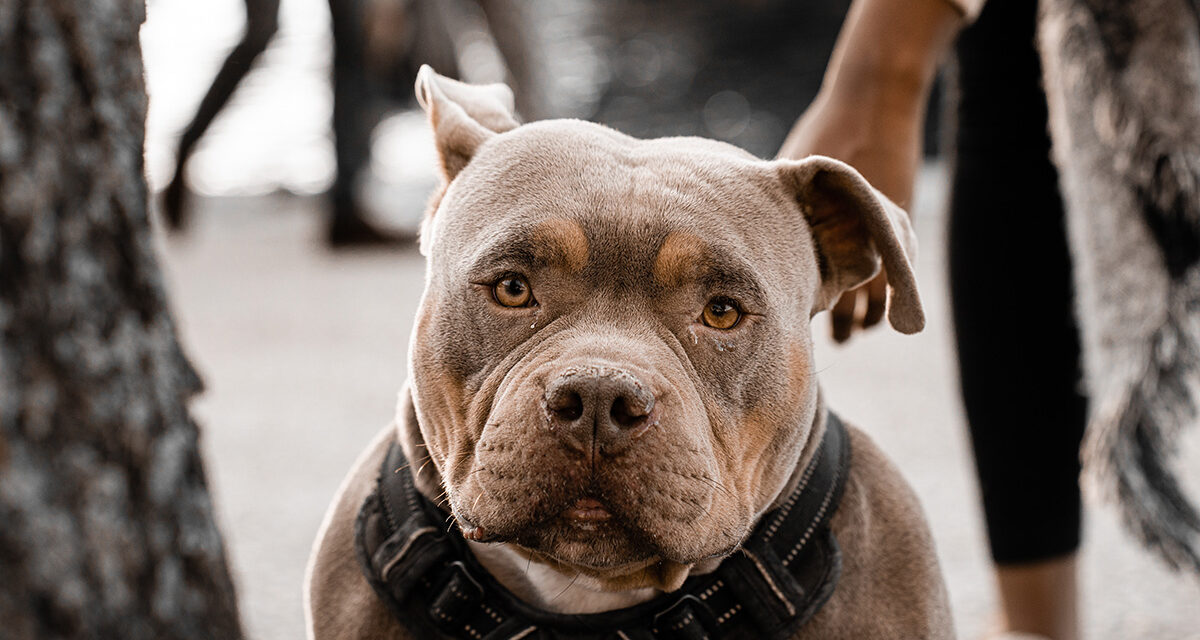The Royal Society for the Prevention of Cruelty to Animals (RSPCA) has reported a significant increase in cruelty and neglect towards XL Bully type dogs in the year following the UK Government’s announcement of a ban on the breed.
The charity’s figures show a stark rise in cases of intentional harm, abandonment, and neglect towards these dogs since the ban was introduced.
The UK Government announced its intention to ban XL Bullies on 15 September 2023, and the ban officially came into force on 31 December 2023 in England and Wales. One year on, the RSPCA has released concerning statistics highlighting the impact of the ban on XL Bully dogs.
164% Increase in Intentional Harm to XL Bullies
According to RSPCA data, reports of intentional harm to dogs identified as XL Bullies have surged by 164% during the first eight months of 2024. There were 103 reports of intentional harm between January and August this year, compared to just 39 reports in the same period in 2023, before the ban was announced.
In addition, reports of abandoned XL Bullies have skyrocketed by 692%, with 103 cases reported so far in 2024, compared to only 13 during the same period last year. Neglect cases have also risen sharply, with 366 reports between January and August 2024, a 239% increase from the 108 reports recorded in 2023.
Disturbing Cases of Animal Cruelty
The RSPCA has reported several harrowing cases of abuse towards XL Bully dogs this year, including:
- A decapitated XL Bully found buried in a shallow grave in Evesham, Worcestershire.
- An XL Bully with head injuries discovered dead in a Middlesbrough park.
- A dead XL Bully in a cage found floating in a Birmingham canal.
- An XL Bully puppy found dead in Bexleyheath with blunt force trauma to the head.
- An XL Bully with a fractured skull discovered in a South London alleyway.
These incidents reflect the growing concern around the treatment of XL Bullies in the aftermath of the ban.
Impact of the Dangerous Dogs Act
The ban on XL Bullies adds them to the list of dogs banned under the Dangerous Dogs Act in England and Wales, alongside breeds such as the pit bull terrier, Japanese tosa, fila Brasileiro, and dogo Argentino. As part of the new legislation, tens of thousands of XL Bullies were exempted from the ban under strict conditions, including mandatory neutering, wearing a muzzle in public, and always being kept on a lead.
However, despite these measures, the RSPCA has raised concerns about the welfare of many of these dogs. Dr. Samantha Gaines, the RSPCA’s dog welfare expert, stated: “These are very concerning figures. We’ve seen an increase generally in reports of serious abuse to animals—particularly intentional harm and beatings—but the increase in reports relating specifically to XL Bully types is very alarming, and we fear this is a direct result of the recent UK Government ban on this type of dog.”
Pressures on Dog Owners During the Cost of Living Crisis
Dr. Gaines highlighted that the pressures brought on by the ban, combined with the ongoing cost of living crisis, may be leading to a rise in cases of neglect and cruelty. She noted that some owners are struggling to cope with the new restrictions, while others may be deliberately harming their dogs due to the breed’s increasing stigmatisation.
“We’re heartbroken that many dogs have been and will be put to sleep simply because they are considered dangerous because they look a certain way,” added Dr. Gaines. The RSPCA remains critical of breed-specific legislation, arguing that it fails to protect the public while also compromising dog welfare.
The RSPCA is part of the Dog Control Coalition, a group of organisations that have long campaigned for a review of legislation that bans dogs based on their breed or appearance. The Coalition advocates for more effective, evidence-based approaches to public safety that do not penalise dogs solely for their physical traits.
As cases of cruelty and neglect towards XL Bullies rise, the RSPCA continues to push for reforms to protect both dogs and the public.








